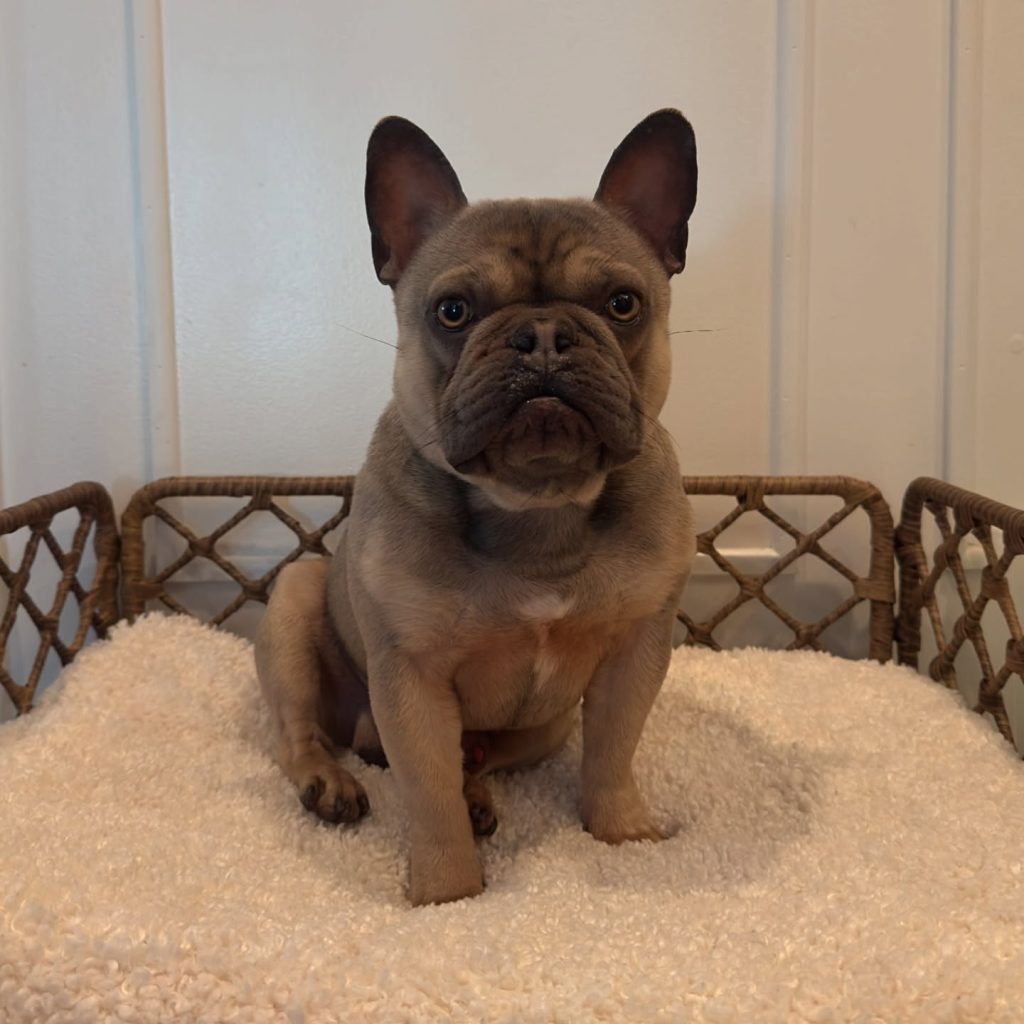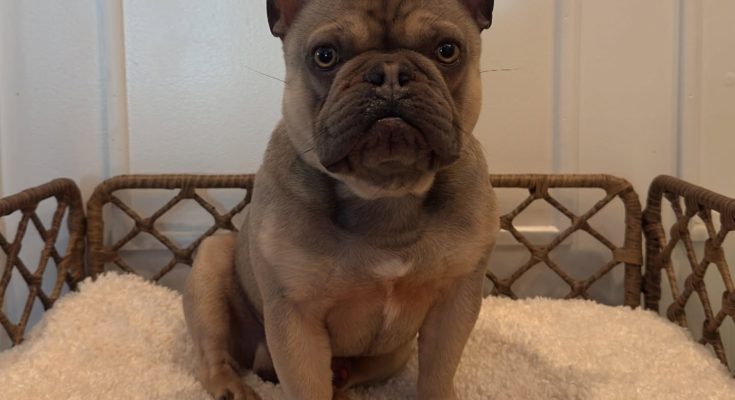Caring for a French Bulldog puppy requires attention to their specific needs. Here’s a guide on how to take care of them:
1. Diet and Feeding:
- Feed your Frenchie puppy a high-quality puppy food specifically formulated for small breeds.
- During the first few months, feed them three times a day on a regular schedule. Around 1/3 of a cup per feeding is usually sufficient for very young puppies.
- As they reach about six months old, you can typically reduce feedings to twice a day, increasing the amount of food per meal.
- Stick to dry kibble as it’s generally easier for their digestion.
- Avoid overfeeding, as French Bulldogs are prone to obesity. Offer healthy treats in moderation.
2. Exercise:
- While French Bulldogs are a low-energy breed compared to larger dogs, they still need regular exercise to stay healthy.
- Provide daily short walks and playtime. Be mindful not to over-exert them, especially in warm weather, due to their brachycephalic (short-nosed) breed characteristics, which can lead to breathing difficulties.
3. Heat Sensitivity:
- French Bulldogs are very sensitive to heat and can easily overheat due to their short snouts.
- Always ensure they have access to shade, especially outdoors.
- Provide plenty of fresh water.
- Limit exercise during hot times of the day.
- Consider using cooling products like cooling mats or vests in hot weather.
- Never leave them in a hot car.
4. Grooming:
- French Bulldogs have short coats that require relatively low maintenance.
- Bathe them every 6 to 8 weeks or when they are visibly dirty, using a gentle dog shampoo specifically made for bulldogs.
- Pay special attention to their facial wrinkles (folds). Clean them daily with baby wipes or a damp cloth and dry them thoroughly to prevent infections caused by trapped dirt and moisture. You can apply a bit of cornstarch after cleaning to help absorb excess moisture.
- Clean their ears regularly, being careful not to let water get inside, as this can lead to ear infections. Frenchie ears are erect and can easily trap moisture.
- Trim their nails regularly to prevent discomfort.
5. Dental Hygiene:
- Brush your Frenchie puppy’s teeth regularly, at least a few times a week, to prevent dental problems.
6. Training and Socialization:
- Start training and socialization early. French Bulldogs are intelligent but can be stubborn, so consistency is key.
- Use positive reinforcement methods like treats and praise.
- Expose them to various sights, sounds, people, and other animals in a positive and controlled manner to ensure they develop into well-adjusted adults.
7. Health:
- Find a veterinarian who is familiar with the breed’s specific health concerns.
- Schedule regular check-ups and vaccinations.
- Be aware of common health issues in French Bulldogs, such as breathing problems (brachycephalic syndrome), allergies, hip dysplasia, and patellar luxation.
- Preventative care, including regular vet visits and parasite control, is essential.
8. Hygiene:
- Clean your puppy’s living area regularly, including washing their bedding.
- Be prepared for potential mess during potty training. Establish a consistent potty schedule and reward successful potty breaks.
9. Safety:
- French Bulldogs are not strong swimmers due to their body shape. Always supervise them closely around water and consider a doggy life vest if they will be near any bodies of water.
- Choose a harness instead of a collar for walks to avoid putting pressure on their trachea, which can exacerbate breathing issues.
10. Mental Stimulation:
- Provide plenty of chew toys with different textures to help with teething and keep them entertained. Avoid plush toys that can be easily torn apart and pose a choking hazard. Durable rubber or nylon toys are good options. Raw beef marrow bones, bully sticks, or Himalayan yak chews can also be good for chewing.
- Engage in interactive play to keep them mentally stimulated and strengthen your bond.
11. Affection and Attention:
- French Bulldogs are known for their affectionate and playful nature. They thrive on attention and love. Spend quality time with your puppy to build a strong bond. They don’t do well being left alone for long periods.

